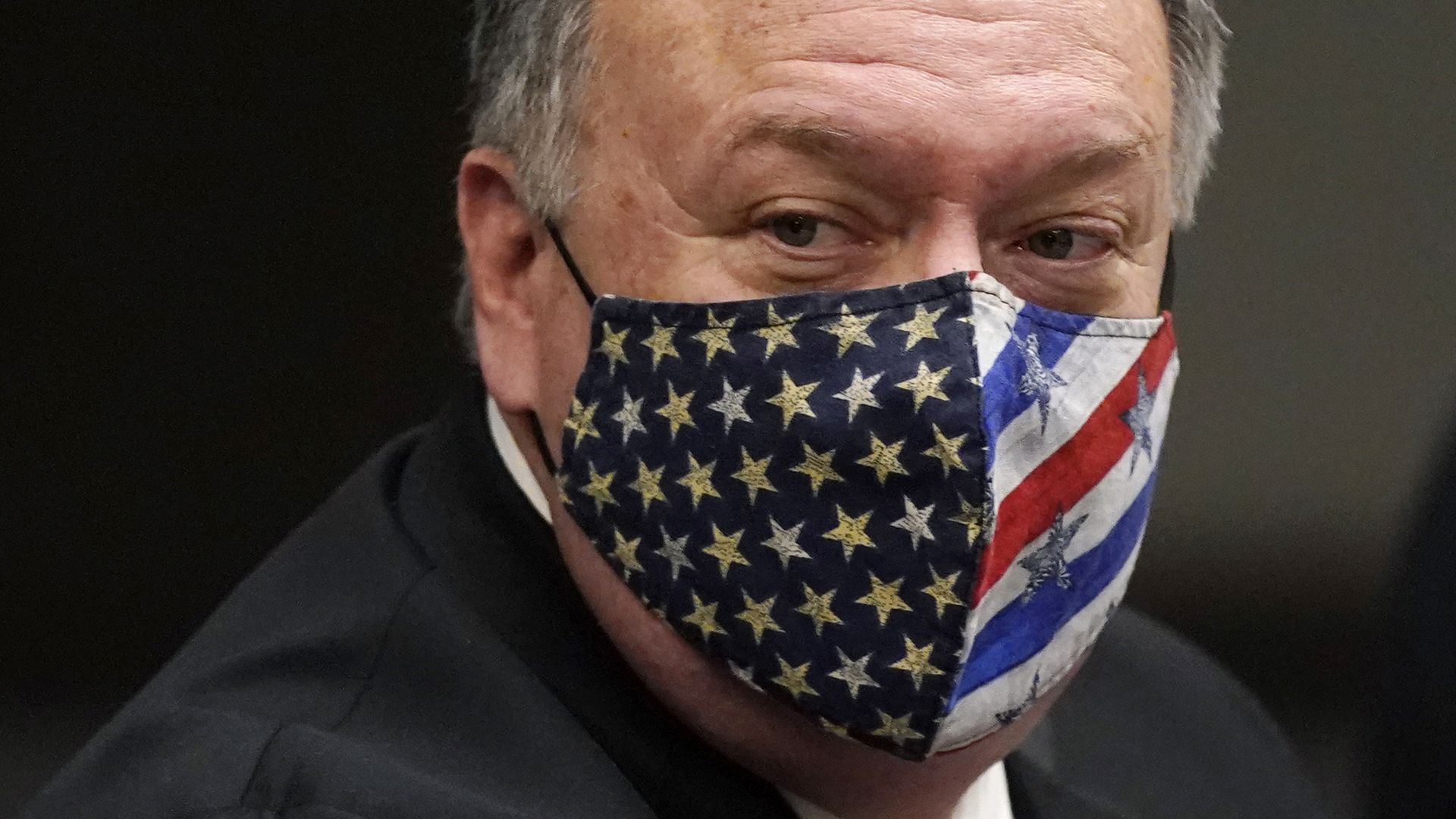Pompeo's last-minute Yemen move sparks outrage in Congress
Add Axios as your preferred source to
see more of our stories on Google.

Photo: Patrick Semansky/Pool/AFP via Getty
The Trump administration is facing a revolt on Capitol Hill over Secretary of State Mike Pompeo's last-minute decision to designate Yemen's Houthi rebels as a terror group despite concerns the move will exacerbate the world's most dire humanitarian crisis.
Behind the scenes: A call the State Department held this morning to brief House and Senate committee staff on the Yemen move devolved into a shouting match and left staffers from both parties shocked by the apparent lack of a plan to ensure that food and aid continue to reach Yemeni civilians, millions of whom are already on the verge of famine.
What they're saying: “People on both sides of the aisle felt very frustrated that this was done in such a haphazard way. I don’t mean to be dramatic, but this could kill people," one congressional aide briefed on the call told Axios.
- “The staff on both sides were just flabbergasted that some basic questions on how we were going to protect the people of Yemen were not answered. It almost felt as though they weren’t planning to answer it. I don’t want to say they don’t care, but it was just very troubling," the aide adds, noting that the briefers also struggled to provide a national security rationale for the move.
- At one point on the call, briefers from the United States Agency for International Development (USAID) acknowledged that the policy could result in a loss of life, according to the aide.
- "I don't know if it’s the fact that it’s the transition and folks have left, or if they are just desperately trying to push things across before Jan. 20. It just seemed like there was a lack of preparedness on both of these issues," the aide said, referring also to the Trump administration's decision to label Cuba a state sponsor of terrorism, which was discussed on the call as well.
The big picture: The major announcements on Yemen and Cuba, as well as a recent policy shift on relations with Taiwan, are all jarring moves in the final days of an outgoing administration, particularly as the president himself seems to have largely disengaged from foreign policy.
- The administration, and in particular Pompeo, have made little secret of the fact that they are trying to tie President-elect Biden's hands, in particular when it comes to policies toward the Houthis' main patron: Iran.
- The Houthis ousted the Yemeni government in 2014 and still control large swaths of the country after six years of war with a Saudi-led coalition. The people of Yemen are facing what the UN calls the world's worst humanitarian disaster, with 80% of the population lacking sufficient food or clean water and millions on the brink of famine.
Humanitarian groups active in Yemen have been pleading for months with the Trump administration not to take the step Pompeo announced today, arguing it would force them to either curtail the aid and services they provide or risk potential U.S. prosecution.
- Oxfam said in a statement Monday that the move would "block U.S. humanitarian aid, goods, and personnel from entering northern Yemen, where 70% of the population lives, and substantially reduce them throughout the rest of the country," seriously hampering efforts to fight hunger, cholera and COVID-19.
- David Miliband, the CEO of the International Rescue Committee, called Pompeo's step an act of "pure diplomatic vandalism" that would make crucial work in Houthi-held areas "all but impossible" and ultimately cause unnecessary deaths.
Today's briefing from the State Department appears to have done little to assuage those concerns. Multiple members of Congress have already released statements opposing the move and calling on Biden to reverse it.
- Rep. Michael McCaul and Sen. Jim Risch, the top Republicans on the House Foreign Affairs and Senate Foreign Relations committees respectively, issued a joint statement warning that the designation will have a "devastating effect" on Yemen's food supply if not accompanied by "the necessary licenses, waivers and appropriate guidance."
- A State Department spokesperson said State would not comment on "internal deliberations or our conversations with Congress." A USAID spokesperson directed Axios to the State Department.
